'They’ve already chosen a husband for me’ A 15-year-old girl’s future traded for food in Somalia
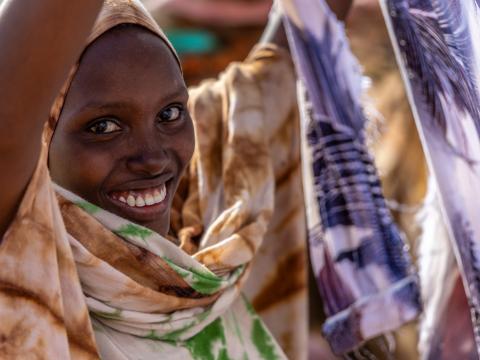
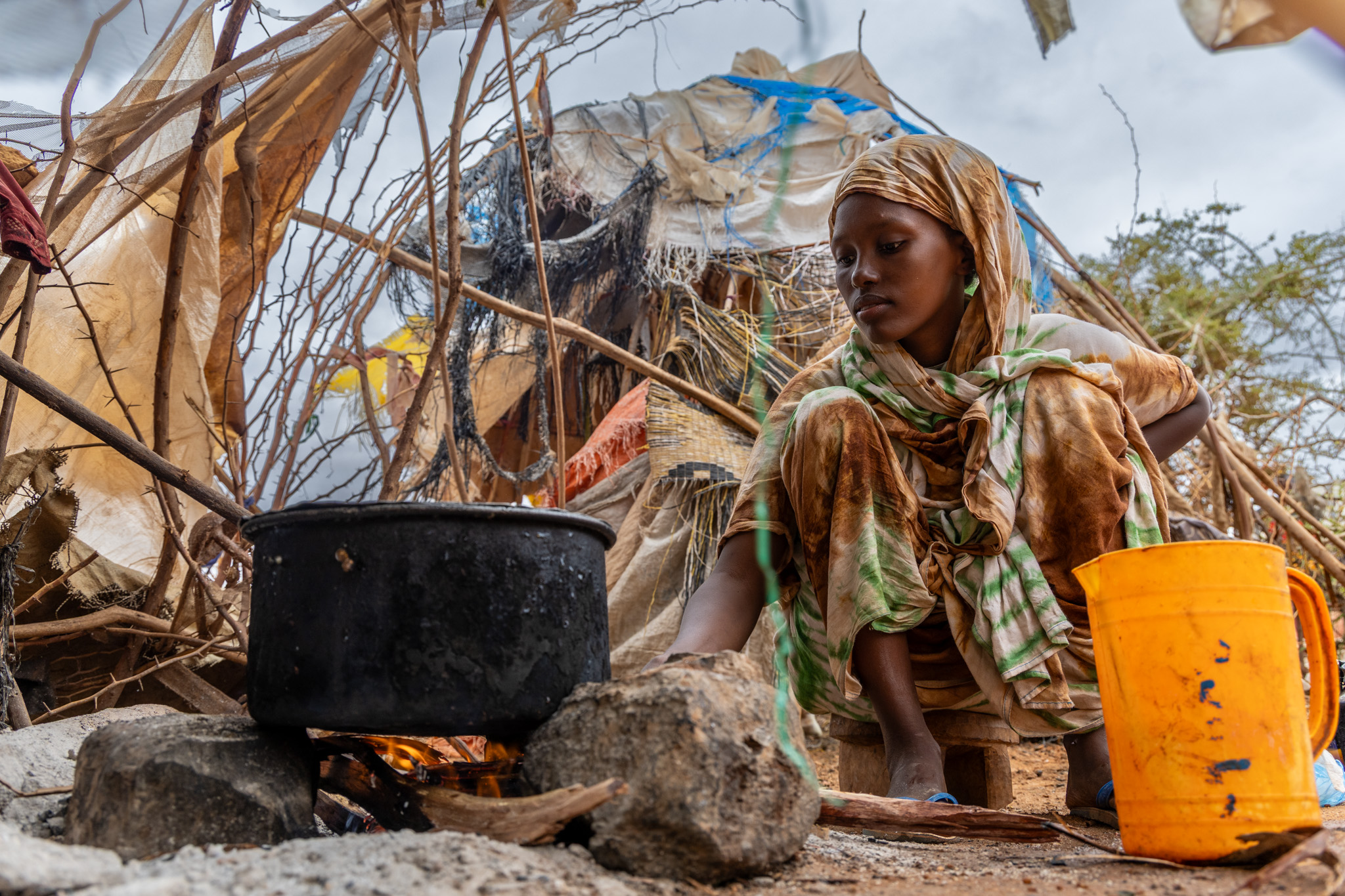 Muslimo* stirs a pot of sorghum on the fire, cooking breakfast for her siblings — a quiet act of tenderness that begins each day warm and strong.
Muslimo* stirs a pot of sorghum on the fire, cooking breakfast for her siblings — a quiet act of tenderness that begins each day warm and strong.
Fifteen-year-old Muslimo* never imagined her childhood would end this way. Once a hopeful student in Ethiopia, she now spends her days cooking, cleaning, and caring for her younger siblings in a displacement camp in Doolow, Somalia. Hunger has taken the place of learning.
Muslimo’s family is among the many in Somalia and Ethiopia who’ve lost humanitarian support in the past year. They’d originally fled drought in Somalia, going to Ethiopia, where they spent seven difficult years living as refugees. When their humanitarian assistance was cut off, the family made the difficult decision to return to Somalia. They arrived in Ladan IDP camp to find hope , but no food rations. Muslimo’s youngest sibling, born after the journey back, is visibly malnourished and has been diagnosed with moderate acute malnutrition, yet no treatment is available.
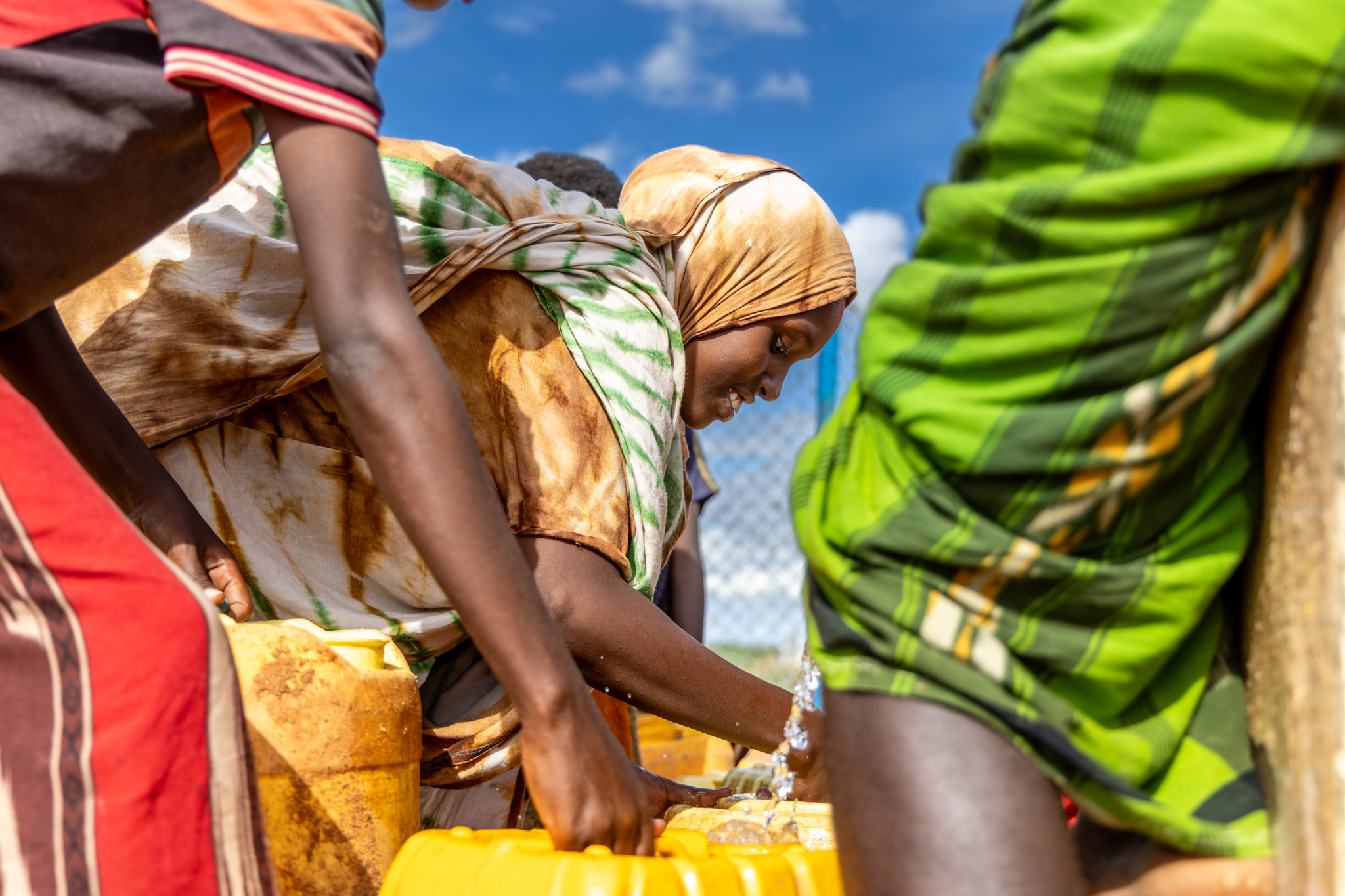
Muslimo walks the dusty path to fetch water , a daily journey of strength and responsibility carried by a 15-year-old girl with the weight of her family on her shoulders.
The family lives on occasional money from their father, who is still working across the border. What little they have is stretched thin. Fortunately, her younger siblings are enrolled in school at their displacement camp, and a school feeding program has eased the lunch burden on her mother.
Her mother, Hawa*, does what she can, working in farms, selling vegetables, and cleaning in town ,but it’s not enough. Sixty-four per cent of parents we surveyed in Somalia say they can no longer afford education, and 78% said that their children are not enrolled in any programme. Not all of Muslimo’s siblings attend school; the youngest stays home with her, skipping lunch to ensure everyone has food in the evening.
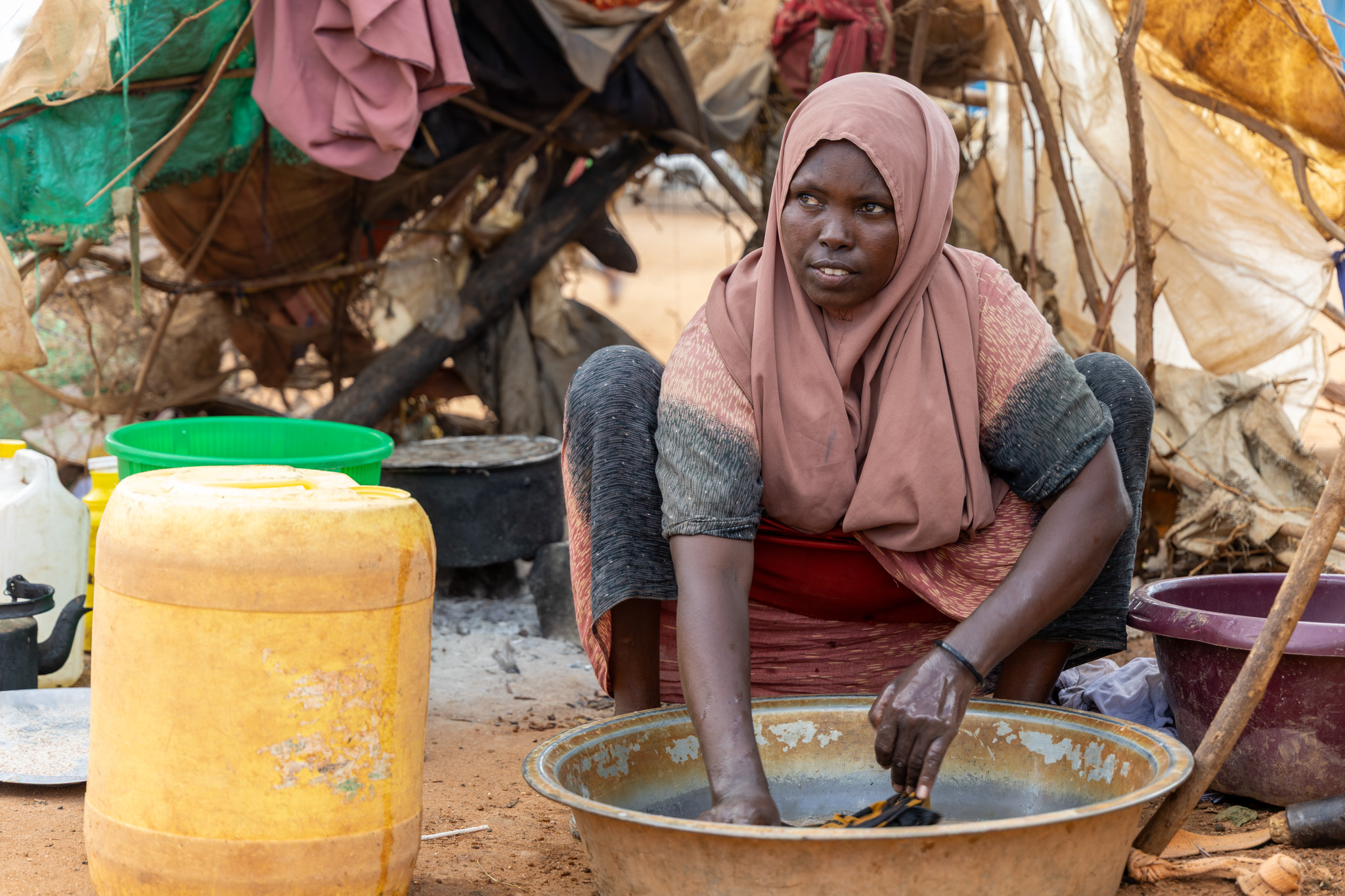
Hawa, Muslimo’s mother, washing clothes under the open sky
Her teacher, Fadumo, sees this play out every day. She shares, ‘Parents usually withdraw their daughters from school first. Girls are either sent to work or tasked with household chores.’
For Muslimo, marriage, not education, lies ahead. Her parents plan to marry her off. They have already identified a man. Muslimo misses her school friends and wonders how they are faring, but for now she focuses on taking care of her siblings and doing what she can to help her mother. Since leaving school, she’s shouldered the burden of family responsibilities, looking after her young siblings, cooking, cleaning and fetching water.
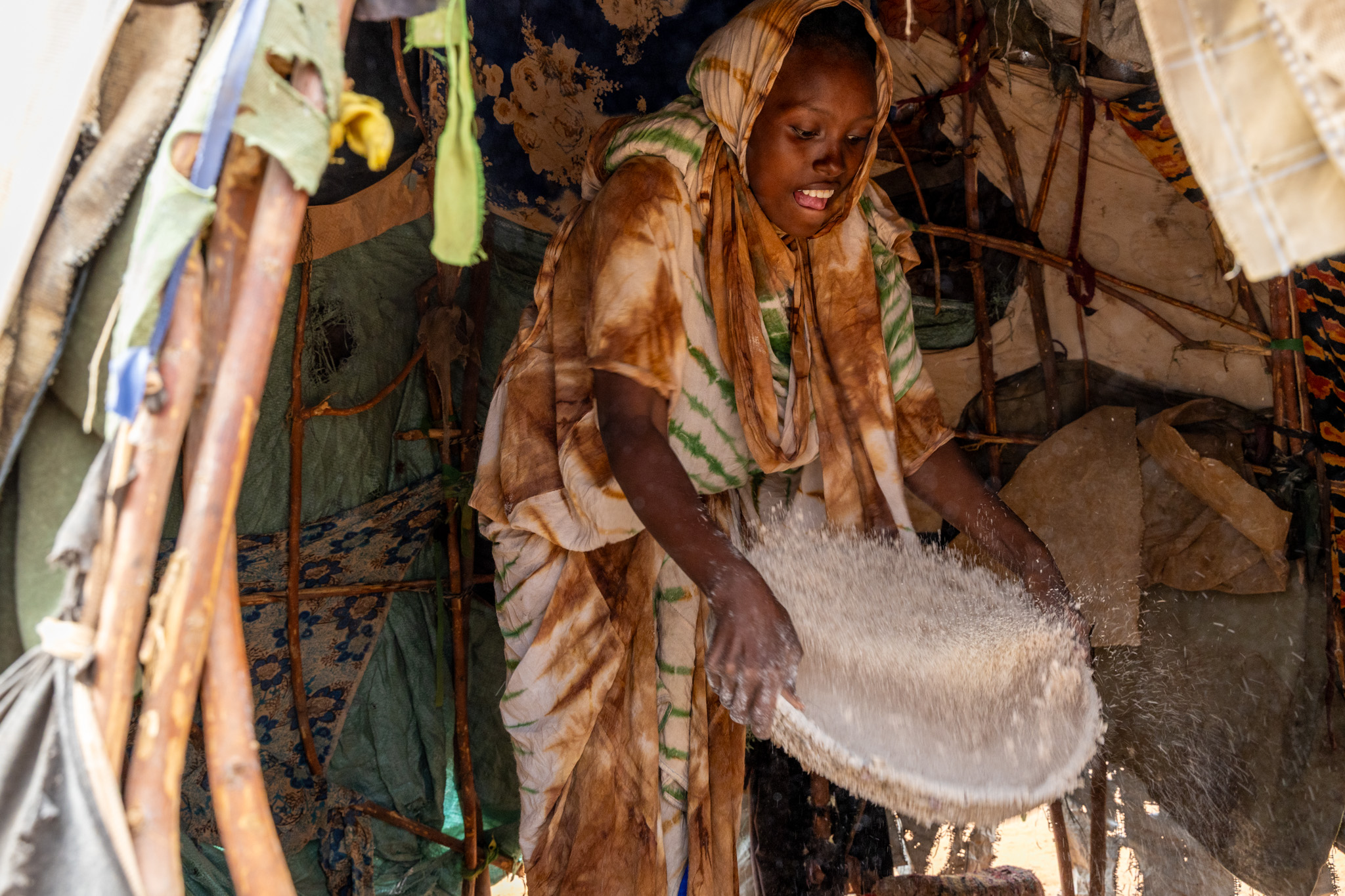
Muslimo winnowing millet, preparing it for breakfast with quiet determination.
Fadumo warns this is a growing pattern: ‘Young girls often see marriage as a path to a better life, driven by poverty and hardship.’
Meanwhile, the school feeding programme – the only reason some children still attend – is at risk. Fadumo is worried.
‘Education is crucial, but it's the feeding program that keeps children in school. Families often have no choice but to move from place to place, country to country, in search of help due to conflicts and natural disasters like drought caused by climatic shocks.’
Somalia’s food crisis is not just a hunger emergency; it’s a child protection emergency. Girls like Muslimo are losing not just meals, but entire futures.
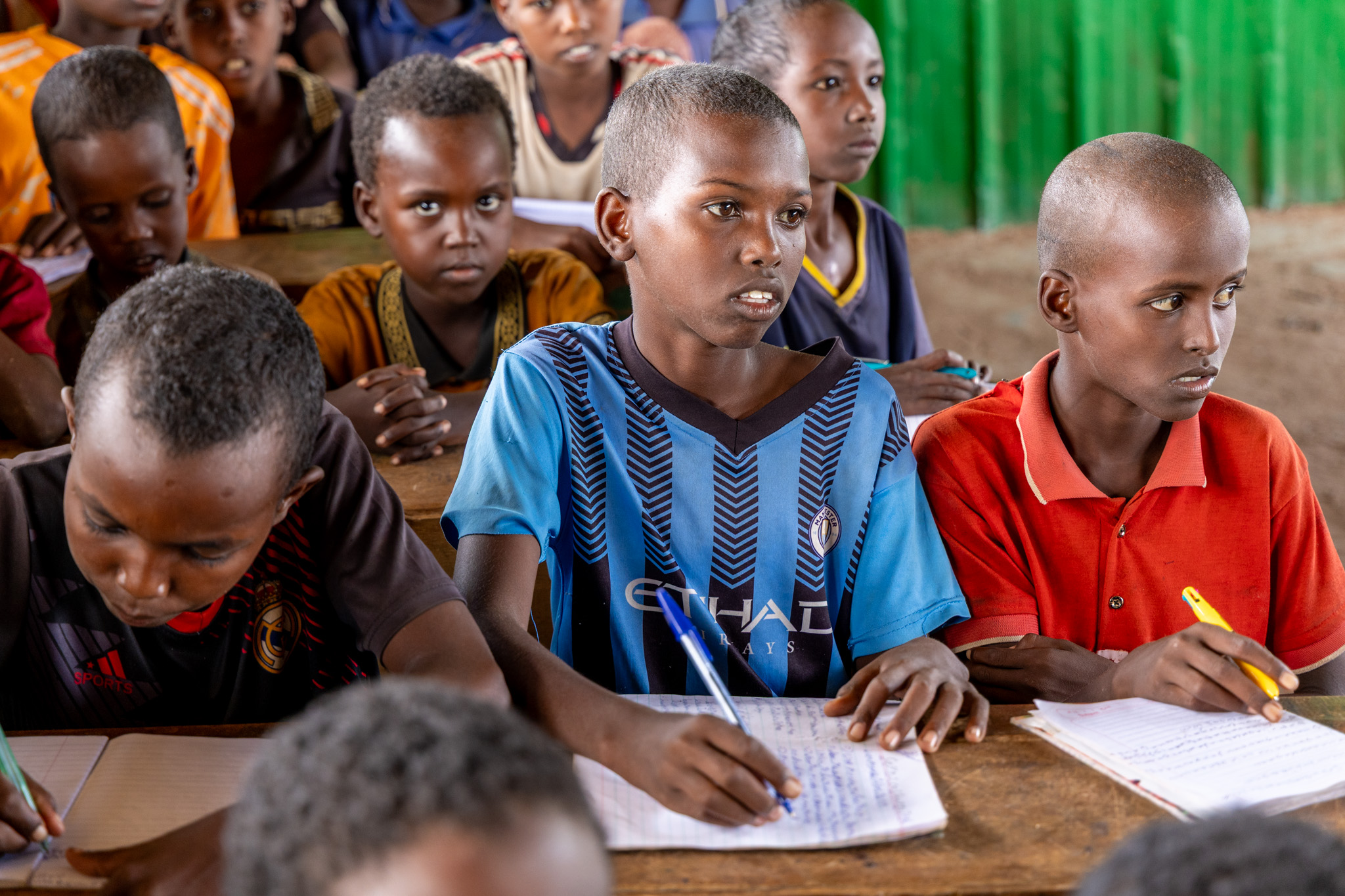
Shuaib, Muslimo’s younger brother, listens intently in class. Though still young, he carries a quiet awareness of his family’s struggles , education is his hope, and he holds onto it with care.
-- By Gwayi Patrick